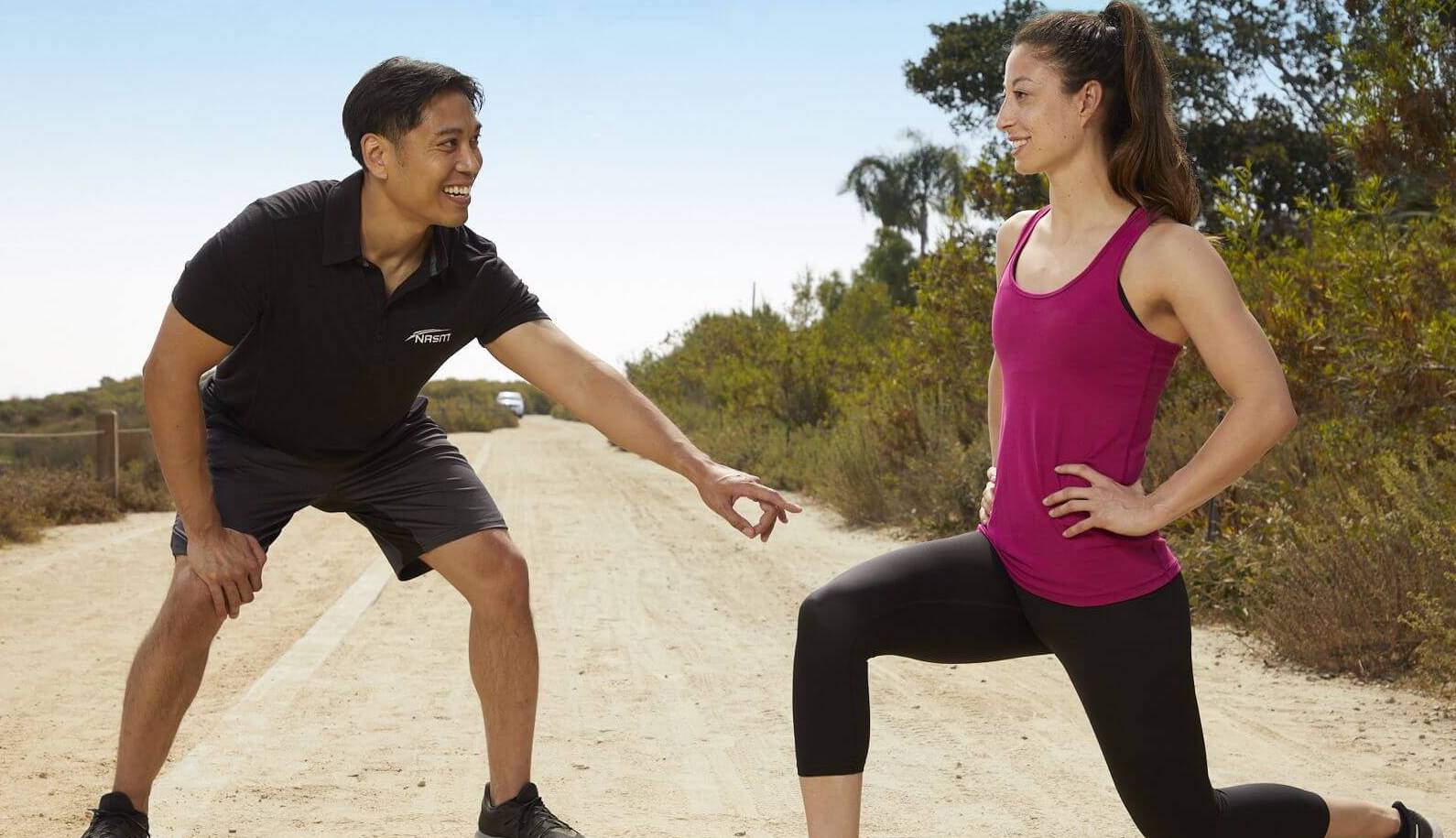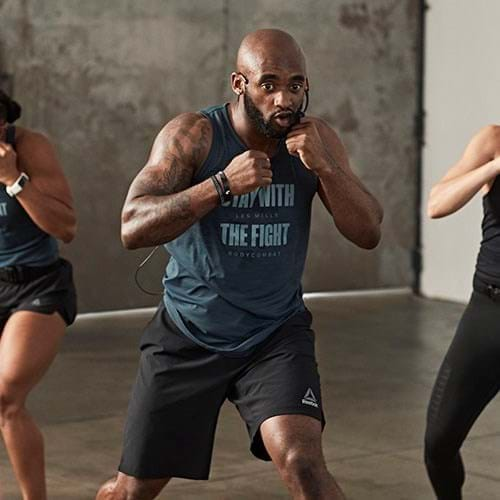
If you want to be a personal trainer, you will need to have the proper education and certifications. You can choose from a variety of courses to become a personal training professional. You can also earn a degree as a personal trainer in the fields of Sports medicine, Exercise science or Business. We will be discussing the distance education courses.
Distance learning is an option
Distance education for trainers opens a variety of possibilities. You can have a one-time coaching session or continue mentoring over the phone, internet, or video. Some trainers offer more complete distance education, similar to what is offered at online colleges or universities. These courses are a great way to expand your knowledge and allow you to work at your own pace.

Sports medicine degree
As exercise and sport continue to be popular, there is an increasing demand for medical professionals who can treat athletes. The demand for athletic trainers will rise by 23 percent by 2030. The increase in awareness about sports injuries and the continued participation among older and middle-aged athletes will contribute to this growth. You can choose from a variety of sports medicine degree programs. While the requirements for these programs are varied, they all require that you have a high school diploma and transcripts. Some programs also require SAT or ACT scores.
Exercise science degree
A bachelor's degree in exercise science provides a strong foundation for a successful career. Students will be studying exercise physiology and nutrition. Doctoral programs may also be offered to graduates in exercise science. A certified personal trainer may be possible with the degree.
Business degree
Business degrees can be very versatile and prepare you to work in a range of business fields. They can also be useful for individuals who are interested in careers in interdisciplinary areas. This article discusses the differences between business degrees at the undergraduate level and graduate level, as well the types of coursework and potential specializations. While each program's curriculum is different, they all have core classes as well as electives. Some programs cover more advanced topics, such as marketing or accounting.
Nutrition degree
A Bachelor's in nutrition can lead you to a rewarding career. This program provides a comprehensive understanding of nutrition science and food production as well as psychosocial factors. Through additional coursework, graduates can choose to specialize. You can also get a master's degree in nutrition.

ACE Certified Personal Trainer Certification
Getting certified as an ACE Certified Personal Coach is a great way for personal trainers to get started. ACE offers a standardized assessment that will assess your knowledge about exercise science and fitness. This test can be costly and time-consuming. It will take several months to pass this exam.
FAQ
Which Is Most Important: Diet, Exercise, or Sleep?
It all depends on your goals. Weight loss is possible by following a healthy diet. To build muscle mass, exercise is crucial. Finally, sleep is the least important factor since it only affects how well you perform during the day.
What is the importance and benefits of good nutrition for your health?
Our health and well-being depends on our nutrition. A healthy diet should include fruits, vegetables and whole grains as well as lean proteins, dairy products, and legumes. A healthy diet will help you stay active and fit, which in turn leads to better overall health.
Can I eat when I'm working out?
Yes. Yes. You can eat whatever you want while you exercise. Low-calorie snacks like watermelon and carrots, celery apples, bananas, grapes, celery, celery, celery, celery, celery, apple, bananas, and carrots are best. These foods provide nutrients that improve your performance during exercise.
Do I need a warm-up before I go?
Warming up before an activity can reduce muscle soreness, improve performance, and help to prevent injury. There are several ways to warm up. These include running, jumping ropes stretching, running and even cycling. You can start slowly and increase your intensity gradually.
Statistics
- In 2018, the World Health Assembly agreed on a global target to reduce physical inactivity by 15% by 2030 and align with the Sustainable Development Goals. (who.int)
- An estimated 110,000 deaths per year could be prevented (cdc.gov)
- Physical activity confers the following maternal and fetal health benefits: a decreased risk of pre-eclampsia, gestational hypertension, gestational diabetes (for example, 30% reduction in risk) (who.int)
- One study showed that adults who watch more than 4 hours of television daily had an 80% higher risk of death from cardiovascular disease. (heart.org)
External Links
How To
How to Lose Belly Fats More Fast
When trying to lose weight, belly fat is often viewed as a problem. When you stop and think about it, Belly Fat can actually be a blessing. It is the fat in your stomach that protects your organs. Let's find out how to lose belly fat quickly.
Lack of exercise and stress are the main reasons we store body fat. Cortisol hormone is stimulated by stress, which causes us to feel constantly hungry. Cortisol levels are increased by insulin. The excess calories are stored as fat by insulin. Lack of sleep causes the release of adrenaline into our system, leading to increased appetite. These extra calories can be broken down by exercising.
There are many methods to lose belly fat. Any one of these can be tried, depending on how much you have to spend. Here are some tips to help you get rid of belly fat quickly.
-
Try to eat less food. You should eat smaller meals throughout the day than you would if you ate three big meals. This will help you consume less calories.
-
Make sure you drink plenty of water. Water flushes out toxins from your body and keeps you hydrated. Also, drinking water before every meal will keep you feeling full longer so you won't overeat.
-
Avoid eating unhealthy snacks. If you're looking for quick fixes, snack foods like chips, cookies, candies, etc. might seem tempting. These sugary treats have lots of empty calories so avoid them. Instead, choose healthy alternatives like fruits, veggies, nuts, seeds, and whole grains.
-
Do strength training exercises at least three times per week. Strength training helps build muscle mass, which means that you can burn more calories even when you are resting. It also strengthens bones, muscles, ligaments, tendons, the heart, lungs, and joints.
-
Walking or stretching is a good habit to do regularly. Stretching improves flexibility and mobility which can reduce back pain. Walking is a great way of burning calories, especially when you do it for just 30 minutes.
-
Reduce alcohol intake. Your diet is empty of calories, and alcohol has no nutritional content.
-
You can lose weight slowly. The first step towards losing weight is to identify what your current weight is. Then, add 5% to 10% to your body weight to get your ideal weight. Once you have established your ideal weight, reduce your daily calorie intake by 500 to 1000 calories each day until you achieve your goal.
-
Avoid processed foods. These foods are high-in salt, sugar, as well as preservatives. While processed foods can be convenient, they don't offer enough nutrients to ensure your health.
-
Don't skip breakfast! Breakfast is good for your concentration, memory, and energy. You should have protein (such as eggs) and fiber (such as oats) for breakfast.
-
Have regular bowel movements. Constipation and irregularity cause bloating and gas. This can be prevented by drinking plenty of water and increasing fiber intake.